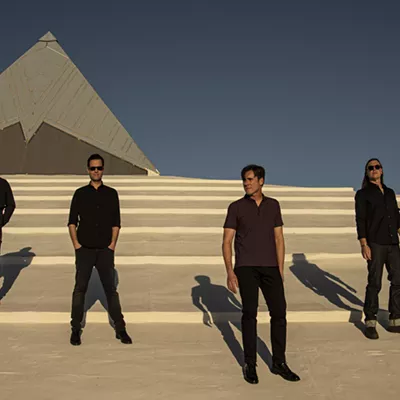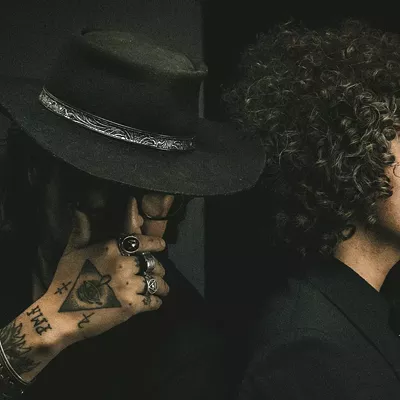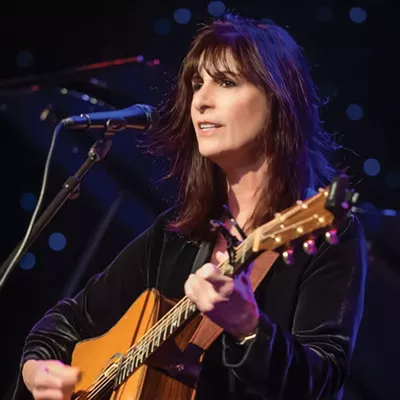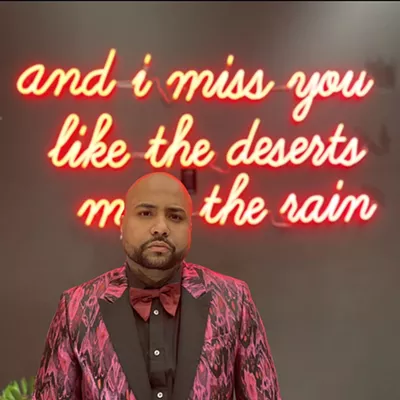TWENTY YEARS AGO, an army of rebels marched on Managua, Nicaragua, and put an end to the long dictatorship of Anastasio Somoza, a bloodthirsty tyrant even by Latin American standards.
One of those rebels was a 19-year-old student from one of Nicaragua's leading intellectual families, Salvador Cardenal. "I was a revolutionary," he says. "But I never carried a gun. I never even fired one. I don't even like stepping on ants."
At the time of the revolution, Cardenal was studying to become a Catholic priest. He abandoned his studies and went into the countryside to work as a teacher during the Sandinistas' national literacy campaign. Not long before, a friend had given him a guitar. "I had wanted to be a missionary, to make people's lives better," he says. "Then I went with my guitar into the fields. I picked cotton and coffee beans, and I wrote songs. I found another calling."
One of his fellow teachers was his younger sister Katia, who, he discovered, also had been developing her musical skills in keeping with family tradition: their grandfather, Salvador Cardenal Arguello, was a composer and folklorist who collected traditional songs; their father was a guitar maker; and their mother a songwriter. "I had known my sister all my life, of course," Salvador says. "But only then did I discover that she had the voice of an angel."
The Cardenals began to work together, forming a duo in the early 1980s called Guardabarranco, after Nicaragua's national bird. "It's like a trogon," Salvador explains, "a beautiful bird of the rain forest. You can't put it in a cage or it will die. I wanted our songs to tell people not to go into cages."
Guardabarranco went on to become one of Nicaragua's leading musical acts, a favorite at concerts and folkloric peñas. For all the revolutionary mood in Nicaragua, the Cardenals kept institutional politics out of their music, instead singing about the concerns of youth -- and especially about romantic love. They found a fan in the American singer-songwriter Jackson Browne, who met the two in Nicaragua in 1984 and invited them to record with him in Los Angeles. The resulting album, Si Buscabas (If You Were Looking), earned the duo wide airplay on college and community radio stations in the United States, including Tucson's KXCI-FM.
Thanks to the efforts of local musician and promoter Ted Warmbrand, the Cardenals first came to Tucson in 1985, where they were greeted by a standing-room-only audience. Subsequent appearances in the city proved just as successful. "People in Tucson love Guardabarranco," Warmbrand says. "It's a little strange, but they draw more people here than they do just about anywhere else -- even political places like Berkeley. So they keep coming back."
Guardabarranco went on to record several more albums with Browne as producer. A few years ago, Katia fell in love with a Norwegian diplomat in Nicaragua and moved with him to Oslo, where she recently released an album of Spanish-language versions of songs by Norwegian artist Alf Proysen -- an album that, Salvador proudly says, "is selling more than Madonna and U2."
Salvador Cardenal remained in Nicaragua, where he grew disillusioned with Sandinista politics. "[Revolutionary leader] Daniel Ortega took millions of dollars out of the country when he was president," he says. "The new president is my uncle, but he's an enemy of the revolution, too. The distance between rich and poor is growing. The unemployment rate is more than 70 percent. And while McDonald's, Subway and Pizza Hut are all over Nicaragua, plenty of people are starving in my country."
"I'm still a revolutionary," he says. "And obviously I'm still a musician. But it seems that I don't get very many invitations to play in my own country these days; the bands in demand are the ones you hear on the pop radio stations. My music is different from theirs. With my songs I want to start a new movement -- an ecological movement to protect the environment."
His new songs, like those he wrote for Guardabarranco, grow from the nueva cancion (new song) tradition, and are indeed ecological. One of them concerns a disaster that occurred last year in the wake of Hurricane Mitch, when 3,000 Nicaraguan villagers were buried in a mudslide. "The mud came because the people had cut all the trees off of the Casitas Volcano, and there was nothing to keep the mountain from washing down over them," he says. "I don't really want to talk so much about the town or the hurricane, but I wanted to make it clear that this is what happens without trees, without the green overcoat of the earth."
Other of his metaphorically rich tunes are as much about love as anything; about the love between people, but also about the love, as one of his songs has it, between a tree and a lightning bolt.
Cardenal has written more than 400 songs to date -- with many more in progress -- about street children of Nicaragua; about the fate of the jungle; about fire, fish, and freedom; and of course, about love. After spending some time in the studio this summer, he hopes to work with his sister Katia on a new Guardabarranco project.
"I have a lot to do," he says. "This music is the bird inside me trying to get out."
Salvador Cardenal performs at 7:30 p.m. Saturday, August 6, at the Southside Presbyterian Church (317 W. 23rd St.). Suggested donation is $10.







